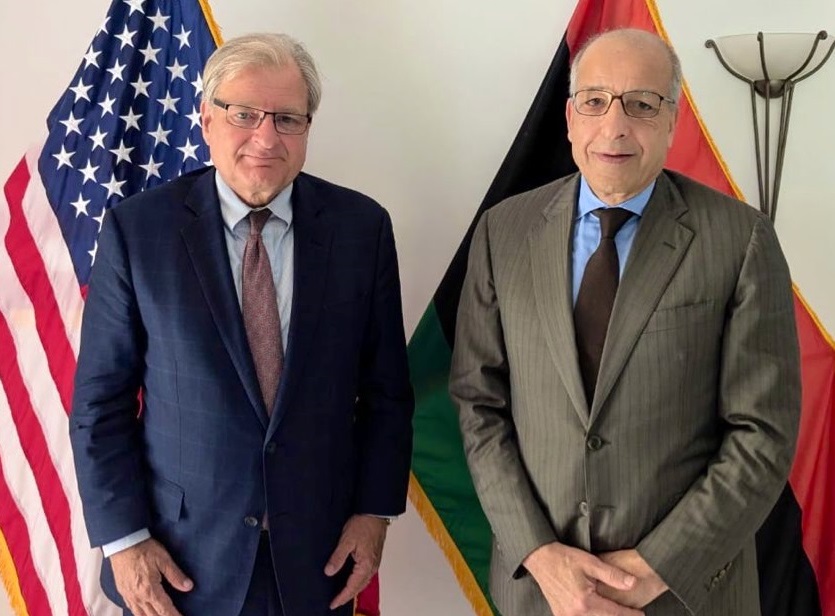The US Special Envoy to Libya, Richard Norland said on Monday that attempting to replace the leadership of the Central Bank of Libya (CBL) by force can result in Libya losing access to international financial markets.
Norland added in a post on the US embassy’s “X” account that disputes over distribution of Libya’s wealth must be settled through transparent, inclusive negotiations toward a unified, consensus-based budget.
Norland met with Central Bank of Libya’s Governor Al-Siddiq Al-Kabir to discuss the concerning armed group mobilizations around CBL headquarters.
“The emergence of yet another set of confrontations between armed groups in recent days highlights the ongoing risks posed by the political stalemate in Libya. Threats to the security of the CBL staff and operations are unacceptable. Like Libya’s other sovereign institutions, the CBL’s integrity must be protected.” He said.
What Happened?
Identical sources told Libya Al-Ahrar that a decision was circulated within the Presidential Council to suspend the Governor of the Central Bank, Al-Siddiq Al-Kabir.
According to the sources, the decision was made by a presidential decree due to misappropriation of funds deposited in a country overseas without legal cover.
The sources added that the Presidential Council took the step because “it has presidential powers; the position of the governor is vacant due to his previous dismissal and the expiration of the maximum legal term for the governor, estimated at 10 years.”
On the other hand, sources close to the governor denied to Al-Ahrar that any decision was issued to suspend or dismiss him from his position.
The sources said that it was not within the Presidential Council’s powers to suspend or dismiss the Governor of the Central Bank according to the constitutional declaration.
The sources added that their relationship with the Presidential Council is special, calling on all parties to prioritize the interest of Libya and to keep the Central Bank away from political conflicts as it is the safe of Libyans’ money and the country’s resources.





